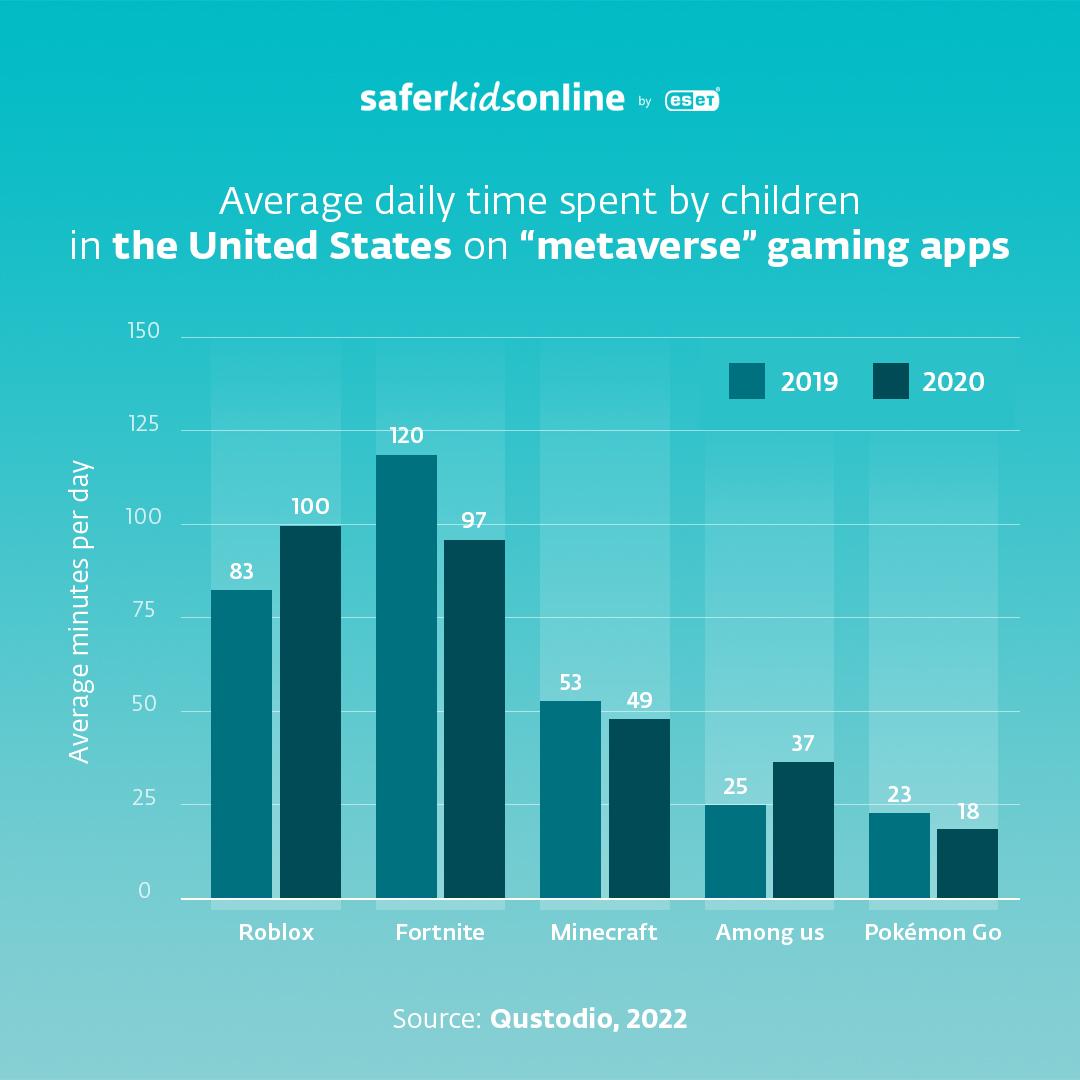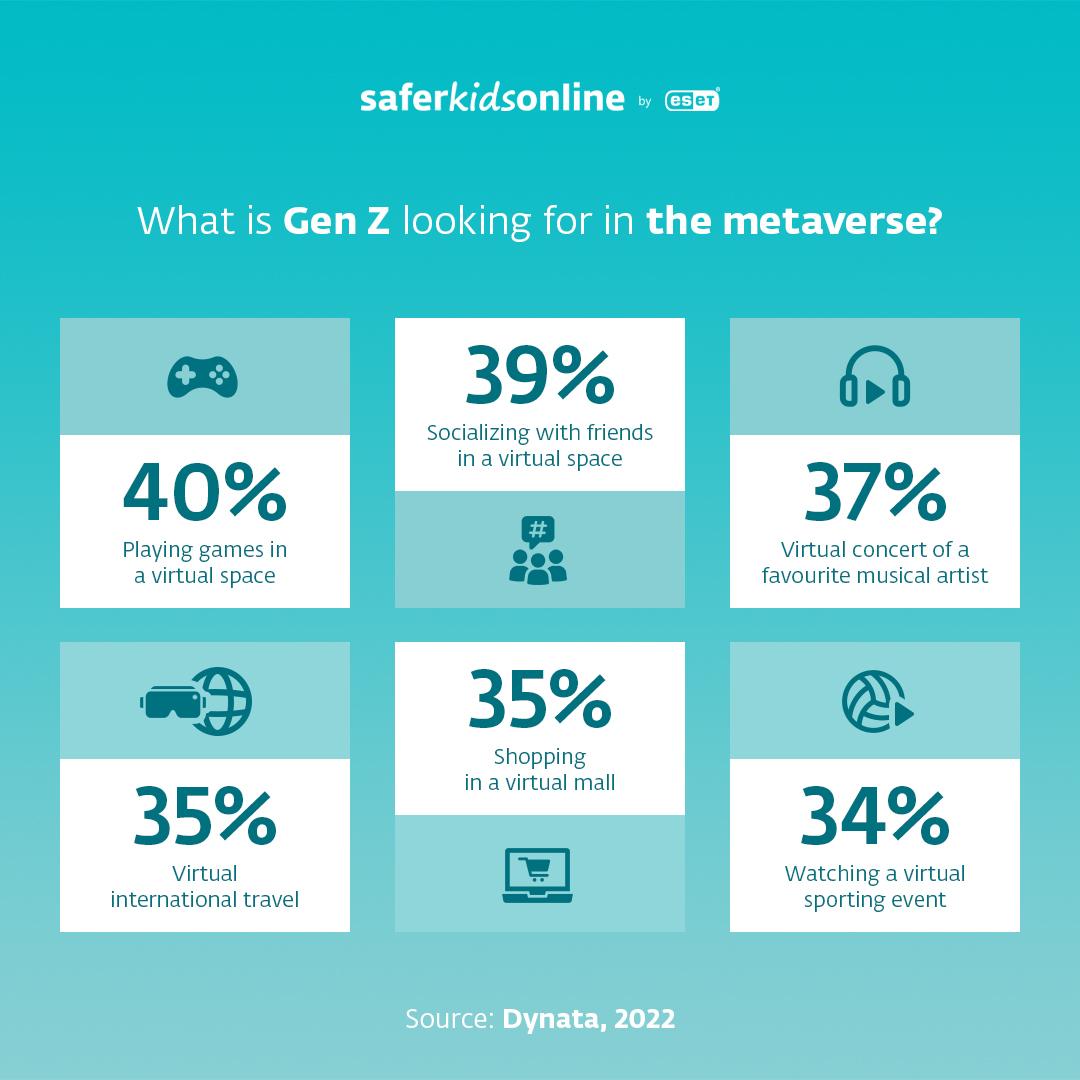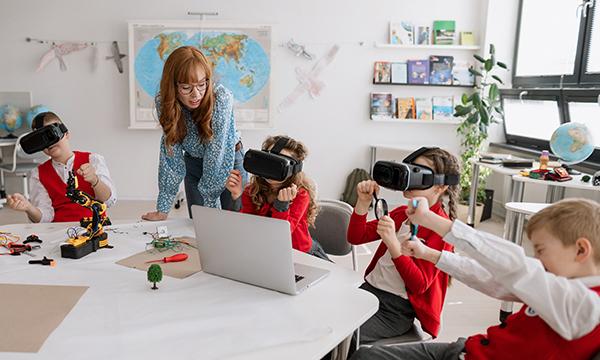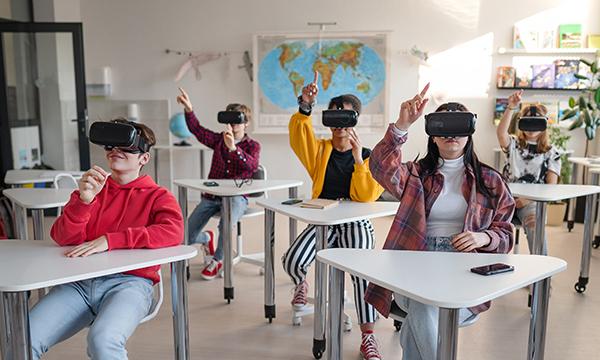The metaverse can be defined as a technological infrastructure that allows human interactions to transcend physical and geographic boundaries. This is also why it can be referred to as a new and significantly expanded version of the internet, which will include non-stop shared 3D spaces connected to virtual worlds. Popular online multi-platform videogames such as Fortnite, Roblox, Minecraft and Second Life are growing on their own into metaverses. These new virtual worlds allow children not only to play but also to communicate with each other, create relationships, improve their creativity and much more. A major turning point occurred in 2020, when a concert by the popular rapper Travis Scott took place in Fortnite. At its peak, over 12 million users around the world had joined this event. Players could not only admire the audiovisual show through the screen but also experience it virtually at the same time as and together with their friends.

Even tech giants such as Mark Zuckerberg became enthusiastic about the idea of the metaverse. He renamed his company Facebook to Meta at the end of 2021, thus fully confirming his interest in the emerging virtual world. His vision is to create a metaverse that is available 24/7 to everyone with a proper headset and a crypto wallet. This new platform would open an infinite number of possibilities for users of all ages – from virtual gallery tours, to games with friends and trips to fantastic planets, to various forms of education and financial investments.
There are many unanswered questions surrounding the metaverse. Perhaps the most important one is how the new virtual world will affect children and adolescents. According to various surveys, the generation that shows the most interest in the metaverse is Gen Z (born between 1997 and 2012). Despite many parents being rather cautious of the new technology, there are many areas of childhood development that the metaverse can have an actually positive effect.

Creativity and empathy
“The metaverse can help kids and adolescents develop their creativity and imagination,” says psychologist and therapist Jarmila Tomkova. She suggests that virtual worlds can help children discover and expand their own identities. In the metaverse, the immediate social environment does not limit children’s social life; as such they can discover many individual characteristics, preferences and talents that they would not have developed in the physical world. “There is also an opportunity to create something for the online community and be a part of it. Metaverse is also a form of relaxation and adventure, which may help kids cope with stress they´ve suffered in the environment where they grew up,” adds Tomkova.
While online, children can adopt various roles such as that of a strategist, team player or caring and resourceful leader. These experiences can be transferred to the world offline. “Some metaverses or virtual realities can even teach the development of empathy, compassion for social issues or tolerance towards other cultures,” says the psychologist. Through metaverse, children can learn more not only about others, but also about themselves. “This can trigger a fundamental change in how they view themselves and their choices in relationships in general. It can encourage the development of other relationships, even ones offline, by allowing children to trust each other more and gain more valuable skills,” adds Jarmila Tomkova.

Fantasy and education
The kid’s metaverse experience can be also understood as play filled, mini project management. All the non-free digital content in the metaverse is purchased in cryptocurrencies or digital values such as V-Bucks in Fortnite. Players use these to make in-game purchases, which means they must take care of their online finances. “It is important to be the kid’s guide in this process. Therefore, it is useful to experience virtual worlds together with your children and learn the value of cryptocurrencies, their ratio to regular currency and the consequences of purchases,” advises Tomkova. It is thus crucial to establish common rules, set restrictions on in-app purchases for children and learn financial literacy together.
Accompanied by their parents, children can also try to follow their dreams and live out fantasies that are difficult to fulfill in the physical world. Metaverse brings the opportunity to own virtual property, build objects, or become a popular artist. The bounds of imagination are unlimited in the metaverse. However, as with all online activities from which children benefit, this comes hand in hand with risks. What are some of the potential dangers?
Addiction and hate speech
As with various video games and social media, metaverses are linked to the threat of potential addiction. “Children can experience relief and acceptance in the virtual world. The prevention of addiction is a long-term task, parents need to take care of children’s well-being from an early age. Fulfilling relationships and a sense of security in the family are crucial,” says Jarmila Tomkova. The psychologist does not recommend virtual reality experiences for children under 13 years of age. Communication is key; talk about problematic experiences and specific adventures with your child. “It is important to reflect with the children on what happened, what the experience was like for them, and where they can use similar behaviors in the offline world.”
Other disadvantages of the metaverse can include cyberbullying, or aggression and the spread of inappropriate language, hate speech and misinformation. “Social media such as Instagram are mainly based on real photos. In the metaverse, users are represented by their dream-like digital avatars. The future challenge will be to control time spent in a world where everyone is simply perfect. It can be a burden on a child’s own self-esteem,” explains Tomkova. Potential risk will occur wherever people meet online. Parents should map out effective ways to prevent harm, and educate young people about the aforementioned cyber threats.

Metaverse has the potential to transform both the digital and physical worlds. Only future development can possibly reveal the spectrum of advantages and disadvantages, but key questions may well turn on issues of privacy. “Oversharing and collection of data on users’ behavior are being dealt with everywhere from social networks to games. At the moment, this may not seem like the biggest issue of the metaverse, but if it isn't addressed in time, it will end up with tech giants collecting huge amounts of data that are not necessarily used for the benefit of the users,” says the ESET security awareness specialist Ondrej Kubovic. This is why it is important to teach children about (not) sharing private information and how to behave safely in online environments such as the metaverse.






